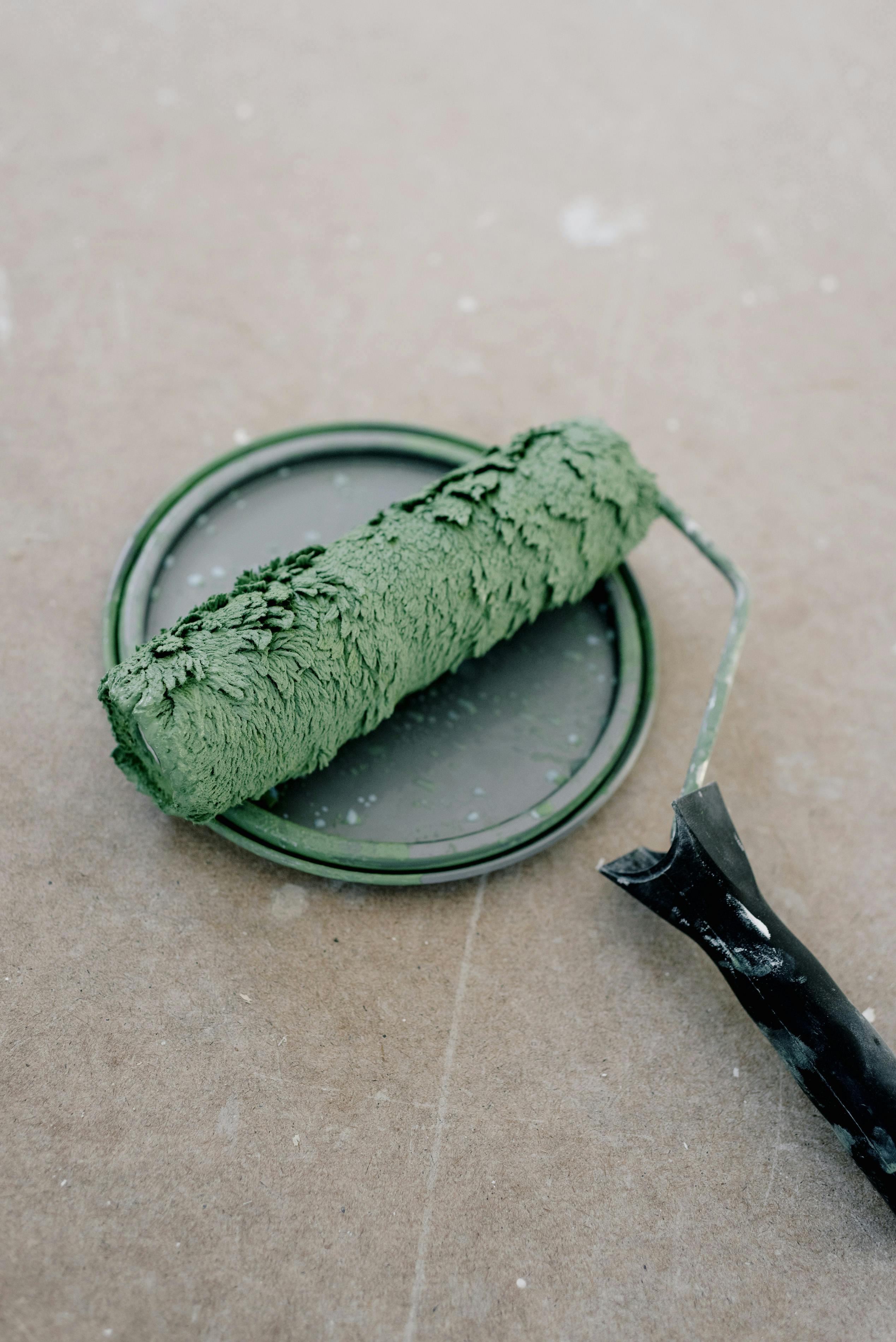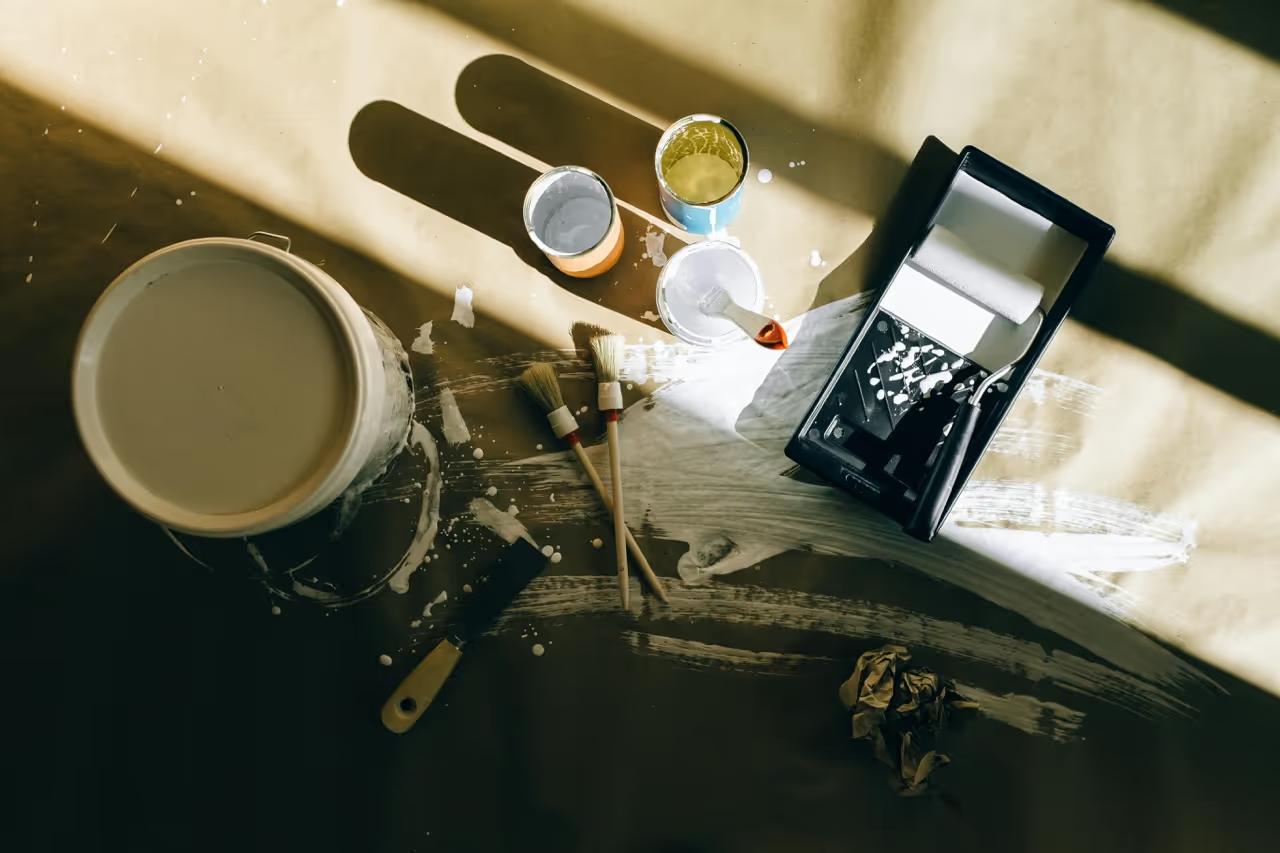View Quick Summary
Proper preparation ensures a smooth painting project. Essential steps include:
- Clear rooms of furniture and valuables
- Remove wall decorations and outlet covers
- Clean surfaces and make minor repairs
- Communicate special concerns with your painter
Good preparation saves time, protects belongings, and helps achieve better results.
Why Preparation Matters More Than You Think
When professional painters arrive at your home, proper preparation can mean the difference between a smooth, efficient project and unnecessary delays. While painters handle the heavy lifting, certain steps from homeowners ensure better results, faster completion, and protection of your belongings. Understanding what to do before painters arrive saves everyone time and prevents potential issues.
Many homeowners underestimate preparation's impact on painting projects. Good prep work allows painters to focus on what they do best - creating beautiful, lasting finishes. It protects your valuables from accidental damage, reduces project time (saving you money), and ensures painters can access all areas needing attention. Plus, it minimizes disruption to your daily routine.
The Week Before Painters Arrive
Start preparation a week early to avoid last-minute stress. Begin with decluttering - painters need clear access to walls, and removing excess items protects them from paint splatters. Sort through belongings, deciding what to store, donate, or discard. This is an excellent opportunity for that spring cleaning you've been postponing.
Schedule any necessary repairs before painting begins. That leaky faucet causing water stains? Fix it now. Loose electrical outlets? Tighten them. While painters handle minor repairs like nail holes and small cracks, major issues should be resolved beforehand. This prevents delays and ensures paint adheres properly to sound surfaces.
Room-by-Room Preparation Guide
Different rooms require different preparation approaches. Living areas need the most attention since they typically contain valuable electronics, artwork, and furniture. Remove all wall hangings, including pictures, mirrors, and shelves. Don't forget to remove nails and screws - painters will patch these holes, but removing hardware speeds the process.
Bedrooms require special consideration for clothing and personal items. Clear closets if they're being painted, or at least push clothing to the center and cover with plastic. Remove items from dresser tops and nightstands. Strip beds if ceilings are being painted - it's easier than trying to remove paint drops from comforters.
Kitchen and Bathroom Considerations
Kitchens and bathrooms present unique challenges due to fixtures and appliances. Clear countertops completely, storing small appliances elsewhere temporarily. Empty cabinets if they're being painted, or at least remove items from the top shelf. Painters will protect surfaces, but starting clean prevents accidents.
In bathrooms, remove all toiletries, towels, and decorative items. Take down shower curtains and remove anything from medicine cabinets if painting nearby. Consider where you'll store daily essentials for easy access during the project. A portable basket keeps necessities handy while work progresses.
- Kitchen prep essentials: Clear counters, empty upper cabinets, remove magnets from refrigerator, protect appliances
- Bathroom must-dos: Remove all personal items, take down shower curtains, clear medicine cabinets, cover fixtures
- General tips: Label boxes by room, keep daily essentials accessible, photograph layouts for easy reassembly
Furniture and Flooring Protection
Professional painters move furniture as needed, but you can help by moving small, valuable, or delicate items yourself. Electronics, antiques, and fragile decorations should be removed entirely from work areas. This protects irreplaceable items and gives you peace of mind during the project.
For furniture that remains, painters typically move pieces to room centers and cover with plastic or drop cloths. However, extremely heavy or built-in furniture might stay in place with careful protection. Discuss any concerns about specific pieces during your estimate - some items may need special handling or additional protection.
Creating Work-Friendly Spaces
Painters need room to work efficiently. Clear pathways from entrances to work areas, removing area rugs that might trip workers carrying equipment. Ensure adequate lighting in all rooms - painters need to see surface imperfections and ensure even coverage. Replace burnt-out bulbs and open curtains for natural light.
Designate a staging area for paint supplies and equipment. This might be a garage, spare room, or covered patio. Having a central location for materials keeps your home organized and allows painters to work more efficiently. Discuss the best location during your initial consultation.
Communication is Key
Before work begins, communicate any special concerns or requirements. Do you have pets that need securing? Are there areas with limited access? Is anyone in the home sensitive to paint odors? Professional painters accommodate various needs but require advance notice to plan accordingly.
Create a contact list including your preferred communication method, emergency contacts, and any special instructions. If you won't be home during painting, establish check-in procedures and clarify any decisions painters might need to make. Clear communication prevents misunderstandings and ensures satisfaction.
Day-Before Final Checklist
The day before painting begins, do a final walk-through. Ensure all preparation tasks are complete and double-check that valuables are secured. Confirm parking arrangements for the painting crew - they'll need close access for equipment and supplies. Clear your driveway or designate street parking if necessary.
Set realistic expectations for your family. Painting disrupts routines, especially with children and pets. Plan alternative activities or spaces for kids to play. Arrange pet care if needed - some animals stress with strangers in the home. Prepare simple meals that don't require extensive kitchen use during the project.
During the Painting Process
Once painting begins, maintain open communication with your crew. Most professional painters provide daily updates and address any concerns immediately. Be available for questions but avoid hovering - let professionals work without distraction. If issues arise, address them promptly rather than waiting until project completion.
Maintain flexibility during the project. Weather can affect exterior painting schedules. Unexpected repairs might emerge once work begins. Professional painters handle these situations routinely, but understanding that minor adjustments might be necessary reduces stress for everyone involved.
Children and Pet Considerations
Keep children away from work areas for safety. Paint fumes, wet surfaces, and equipment pose risks. Establish clear boundaries and explain why certain areas are off-limits. Consider scheduling painting during school hours or arranging playdates to minimize disruption.
Pets require special attention during painting projects. Dogs and cats might escape through open doors or windows. Paint fumes can affect sensitive animals. Wet paint on curious paws creates messes. Consider boarding pets or confining them to unaffected areas. Discuss pet arrangements with painters - most have experience working in pet-friendly homes.
Post-Painting Considerations
After painting completes, avoid rushing to reassemble rooms. Paint needs time to cure fully, even when dry to touch. Wait at least 24 hours before hanging pictures or moving furniture against walls. This prevents marks and allows paint to achieve maximum durability.
Professional painters typically handle major cleanup, but some tasks remain for homeowners. Replace outlet covers and switch plates. Rehang curtains and blinds. Return furniture to original positions. Take time arranging rooms - fresh paint offers opportunities to try new layouts or update décor.
Proper preparation transforms painting projects from stressful ordeals into smooth experiences. By following these guidelines, you protect your belongings, help painters work efficiently, and achieve better results. Remember, professional painters handle the hard work - your preparation simply ensures they can deliver their best work in your home.
Related
Check Out Some Of Our Other Blogs

DIY Painting vs Hiring Professionals: Making the Right Choice
Read Article

How to Choose the Perfect Paint Colors for Your Home
Read Article

Interior vs Exterior Paint: Understanding the Key Differences
Read Article

Need Help?
Ready to Schedule Your Painting Project?
Our detailed preparation guide comes with every estimate. We'll walk you through exactly what's needed for your specific project, making the process stress-free.
Frequently Asked Questions
Painting Preparation Questions
Everything you need to know about preparing for your painting project.
Free Estimate
Schedule Your Free Estimate
Contact us today for a free, no-obligation estimate on your painting project. We serve residential and commercial clients throughout Rockwall & Collin County
* Free estimate spots filling up quick

